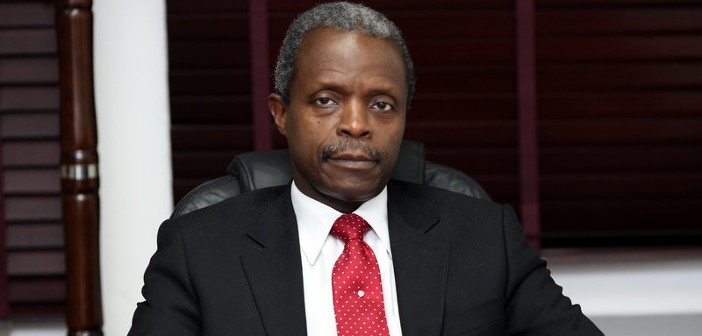As the 70th anniversary celebration of the United Nations draws nearer Vice President Yemi Osinbajo has once argued for the justification of Nigeria occupying a seat in the global body’s Security Council.
Speaking yesterday in Abuja at the Nigeria launch of the Global Commission’s Report on ‘Confronting the Crisis of Global Governance,’ Osinbajo stated that “In addition we take the position that based on our peace keeping role in the United Nations, the size and strength of our economy and that the fact that our country has the largest population in the continent and the largest economy, Nigeria deserves a permanent Member State in the (United Nations) Security Council.”
Osinbajo said that “African states must learn to treat our people, not merely as statistics but as human beings worthy of dignity and respect and this can only be fully reflected in provisions by governments of social services and opportunities for their people. Of course, injustice in one state leads to insecurity and instability in neighbouring state, even in only of account of social economic consequences on the movement of refugees. Ultimately no nation is free on the consequences of injustice anywhere.
“Furthermore, Nigeria fully shares the views expressed in the report that the United Nations Security Council should be expanded including the call on the report on the use of veto (power) by five ordinary members.
“In cognizant with our view that peaceful settlement of disputes be encouraged and made more whole, we also agreed that the International Court of Justice should be strengthened and put to wider use by including by expanding thee acceptance of it’s jurisdiction and using it’s opinions creatively for global dispute,” the Vice President reiterated.
In his remarks, chairman of the occasion, Amb. Babagana Kingibe said the report of the commission, followed an extensive research and over 20 international consultations including two UN member states consultations one of which, he said, was hosted by Nigeria’s ambassador to the UN, Dr Joy Ogwu.
Gambari said the institutional reform agenda is geared towards a roadmap for broad-based policy dialogue and an institutional reform agenda aimed at 2020, the 75th anniversary commemoration of the United Nations.
“The recommendations of the commission are intended, in this 70th anniversary year of the United Nations, to encourage what Secretary Albright and I have been calling a roadmap for broad-based policy dialogue and an institutional reform agenda aimed at 2020, the 75th anniversary commemoration of the United Nations.




